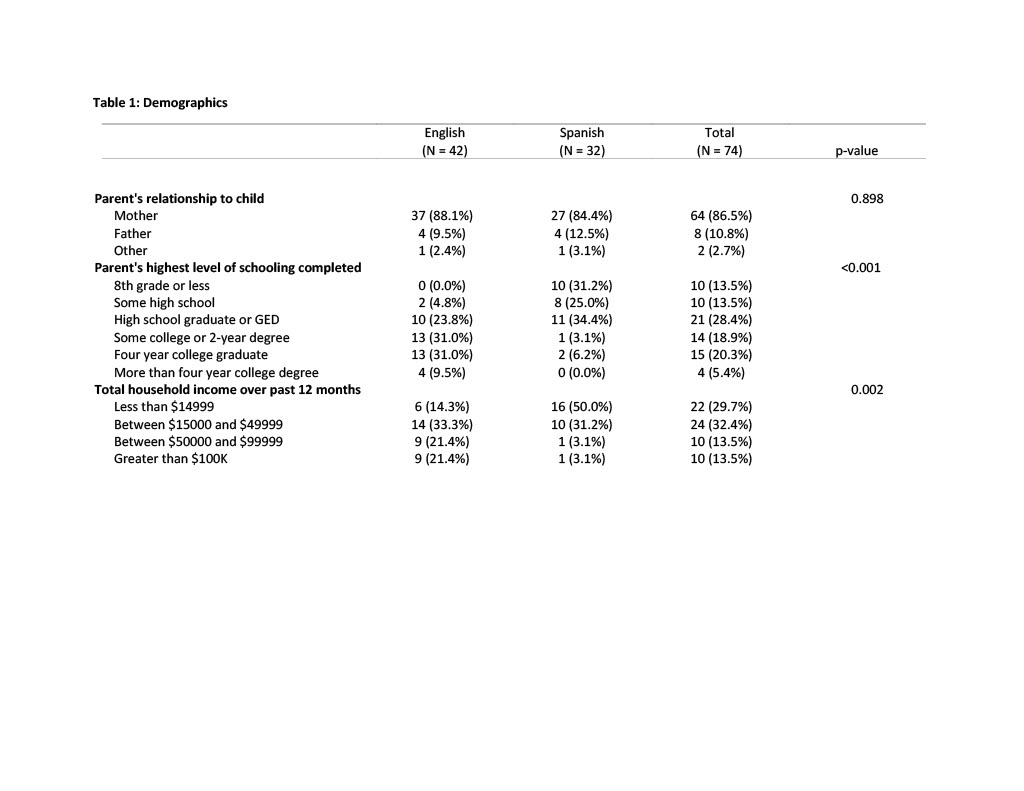Hospital Medicine: Clinical
Hospital Medicine 5
739 - Exploring the Relationship Between Discharge Teaching and Post-Discharge Coping Among Caregivers of Hospitalized Children
Publication Number: 739.414

Jennifer Baird, PhD, MPH, MSW, RN, NEA-BC, NPD-BC, CPN (she/her/hers)
Director
Children's Hospital Los Angeles
Los Angeles, California, United States
Presenting Author(s)
Background: Discharge processes vary within and across hospitals and regions and are fraught with inconsistencies, omissions, and duplications, which increases the likelihood of medication errors, provider miscommunication, and caregiver anxiety. High-quality discharge teaching may alleviate many of these challenges. Therefore, we sought to evaluate the relationship between quality of discharge teaching and caregiver post-discharge coping.
Objective:
The purpose of this analysis was to evaluate the relationship between quality of discharge teaching and caregiver post-discharge coping.
Design/Methods:
Parents of hospitalized children on a general medical unit were eligible to participate, which included completing two questionnaires, one on the day of discharge (Quality of Discharge Teaching Scale) and the other 3-weeks post discharge (Post-Discharge Coping Difficulty Scale). Multivariate regression was conducted to evaluate strength and direction of the relationship between quality of discharge teaching and post-discharge coping ability.
Results:
Sixty parents (35 English, 25 Spanish) completed the study. Most were mothers (86%), had at least some college education (56%), and reported an annual income of less than $50,000 (70%). A Poisson regression with robust estimation was fit to the data and adjusted for income, education, and language. Both full and reduced models were compared using AIC/BIC, with slight preference for a reduced model adjusting only for income. The final model resulted in nearly a ½ point improvement in post-discharge coping for each point increase in quality of discharge teaching (p< 0.069). Higher income was also negatively associated with post-discharge coping ability (β = -1.51, p< 0.046).
Conclusion(s):
High-quality discharge teaching was positively associated with improved post-discharge coping scores, trending toward statistical significance. Further study with a larger sample may confirm this.
Interestingly, higher reported income negatively impacted post-discharge coping, which merits further investigation. The quality of discharge teaching plays an important role in preparing families for the transition home from the hospital. Cultural sensitivity, rapport building, and intentional partnering with families during the discharge education process may lead to higher levels of post-discharge coping.
